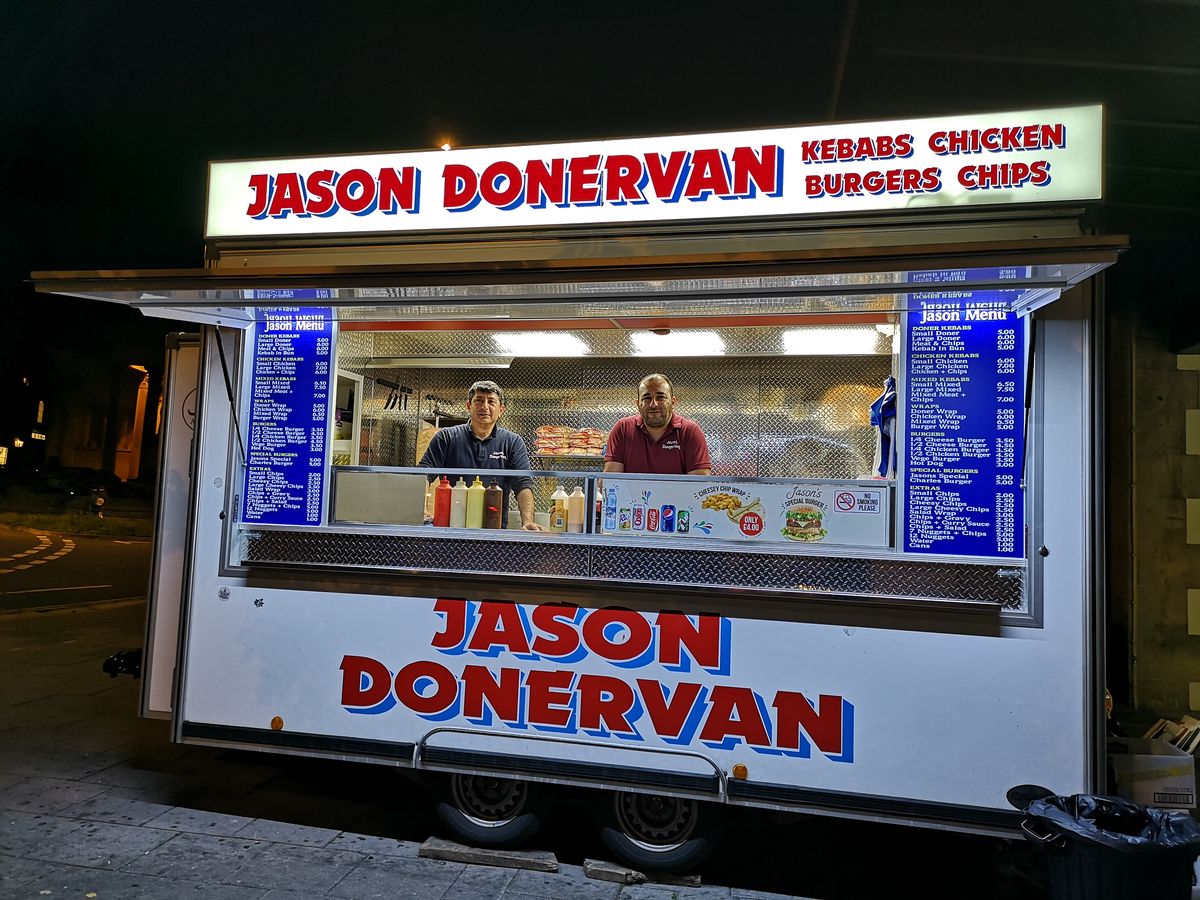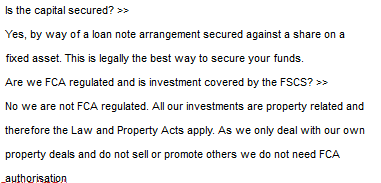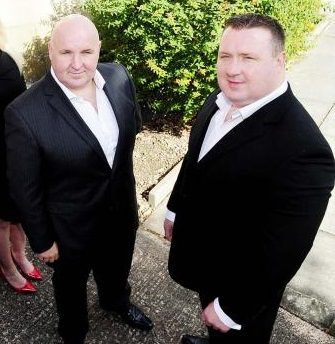The administrators of Mederco, which ran a number of unregulated investment schemes including one involving spaces in the Bury FC car park, have released a six-monthly progress report.
Since the initial proposals in March, a secured creditor has emerged, Capital Bridging Finance Solutions. CBFS loaned £333,000 to Mederco secured on a basement car park in Bradford. Mederco director and former Bury owner Stewart Day had told the administrators that this had been repaid. CBFS have now told the administrators this was inaccurate and that £152,291 remains outstanding.
Capital Bridging Finance Solutions has raised funds from investors via Capital Bridge ISA bonds paying 9% per year, reviewed here in October 2018. Hopefully the rest of their loans to “hand-picked property developers in the UK” are going a bit better. Capital Bridge states that it “takes significant security on all loans”. Whether the basement car park is sufficiently valuable to get its investors’ money back from Mederco remains to be seen.
(Thanks to reader Adam Smith for spotting the connection.)
CBFS’ outstanding loan is a secured one and ranks ahead of car park investors whose “guaranteed” payments were defaulted on, and anyone else who isn’t the administrators. Realisations are not anticipated to be enough to repay CBFS in full. As expected in the original proposals, total losses are therefore anticipated for unsecured creditors.
Bury FC
Substantial sums were invested by Mederco in Bury FC. The exact amount owed by Bury FC to Mederco could not be ascertained. Funds transferred from Mederco to Bury FC were treated as loans and subsequently converted to shares in the club. The administrators note that the share capital of Bury FC increased by approximately £5 million under Stewart Day’s tenure as at May 2017.
As anyone who takes an interest in English football knows, Bury FC is currently undergoing a Company Voluntary Arrangement. Had Mederco proved a “significant claim” against Bury FC, the administrators believe Bury FC would have been wiped out. The success of the Company Voluntary Arrangement is depedendent on football creditors being paid off by third parties, and Mederco enforcing whatever claim it has against Bury FC would have scuppered that, probably without any return to Mederco.
The administrators have therefore sold any claim Mederco may have to an unspecified “corporate entity”, with a personal guarantee, for a fixed sum of £70,000. (Who has provided the personal guarantee is also unspecified.) £20,000 has been paid as at the date of the report, with a further £50,000 due in monthly instalments up to January 2020.
The £20,000 initial payment is the only asset realised by the administration as at the date of the report.
Administrators to attempt to sell the remaining parking spaces
As described in our earlier article, Mederco developed a block of flats in Bradford known as Appleton Point. Mederco sold the flats to investors with a guaranteed yield of 9% per year.
Mederco sold the the freehold of Appleton Point in May 2015 to E & J Ground Rents No 1 LLP for £850,000, who subsequently leased the basement car park back to Mederco for 999 years at a peppercorn rent. Mederco then sold the car parking spaces to another batch of investors for £9,995 each, again for a guaranteed yield of 9% for five years with an uplifted buy-back after that.
Appleton Point failed a fire inspection earlier this year and residents were ordered to leave the property with 15 hours’ notice. The property management company is attempting to obtain the necessary funds from the long leaseholders to make the property safe.
The administrators state in the report that once the fire safety works have been completed, “we will look to market the six remaining under-leases for sale at the previously achieved price of £9,995 per space”.
Um, good luck with that.
Nobody is going to buy a car parking space in Bradford for £9,995 if it doesn’t come with a supposed guarantee to pay 9% a year. If Mederco could have sold the parking spaces for £9,995 a pop without offering to pay investors £900 a year and more than £9,995 to take it back five years later, they would have.
The problem with buying a car parking space as an investment, unlike a leasehold flat, is that whoever owns the car park has no incentive to put cars in your space before they fill up their own.
This is a problem with all vertical landbanking investment schemes whether the asset is a car parking space, hotel room or care home suite. It is not a problem with investing in, say, a buy-to-let flat where the leaseholder remains responsible for finding somebody to pay them to live in it.
Invariably this problem is solved by the operator of the investment scheme offering to lease the asset back from the investor in return for a “guaranteed” “assured” or “fixed” yield. This works until the operator runs out of money to meet the guarantee and stops paying the investor.
The administrators are, thankfully, not going to be telling investors to buy car parking spaces for £9,995 in the expectation of 9% per year returns plus an uplifted buyback from an already bankrupt company.
Who they are going to find to buy the parking spaces without any guarantees attached remains to be seen.
But that is largely moot to investors in the car parking spaces that were sold, as no returns are anticipated for them from the administration.
Administrators to pay accountancy fees to the other Day
One company that is going to get a return from the administration is Younique Accountancy.
Younique Accountancy (no relation to the makeup multi-level marketing scheme) were Mederco’s previous accountants and have been retained by the administrators “due to their historical knowledge of the Company and the cost efficiency in retaining them to assist the Joint Administrators”.
Younique are to be paid on a time cost basis. Accountancy fees are estimated at £5,000 by the administrators.
Younique’s sole director and owner is Neil Day. Any relation to Stewart Day? Their exact relationship is not public, but what is public knowledge is that Neil Day was a former director of other Stewart Day companies including Swish Property Limited (dissolved in 2013) and Rainbow Homes Limited (Neil resigned in 2013), which suggests it’s more than a coincidence.
It’s a sad fact that often the only beneficiary of an administration is the administrators whose fees always stand first in the queue.
When one of the recipients of those fees is the (brother? cousin? namesake and longstanding former business partner?) of the guy who ran the collapsed investment scheme, it’s an extra kick in the teeth for investors.









 And the hunt for LCF’s missing gee gees hasn’t gone much better.
And the hunt for LCF’s missing gee gees hasn’t gone much better.



